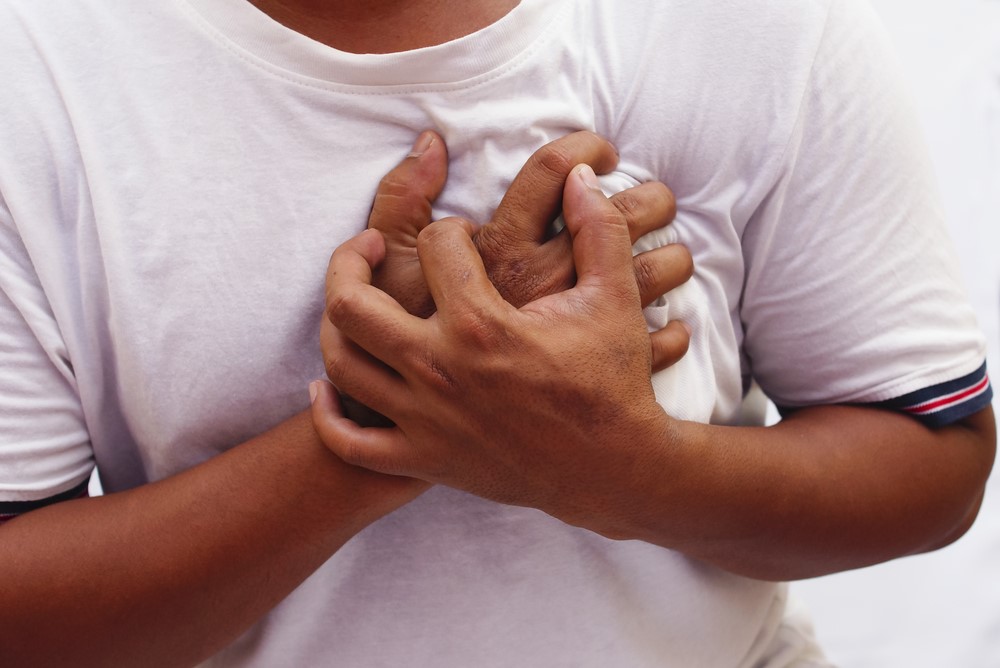
Heart disease is one of the primary causes of death, costing the lives of a large number of people. A heart condition could be avoided if it is addressed at the correct moment. There are certain silent heart attack signs that you should know maybe till now you were ignoring such indications but in this article, you will know such silent heart attack signs. Treatment delays, on the other hand, can have catastrophic implications.
The term “silent heart attack” refers to a situation in which the evidence of a previous heart attack is discovered during a medical checkup in people who would not be aware that they have had one. Pleuritic chest pressure, intense chest pain, perspiration, chest discomfort radiating down the arms and into the back, and shortness are all conventional symptoms of a heart attack. Along with these visible indicators, the body also sends out several subtle signals that suggest the possibility of a heart attack.
6 Silent heart attack signs:
Excessive tiredness
Females are more likely than men to experience this silent indication of a heart attack. Individuals who may be on the edge of a cardiac arrest, according to medical experts, feel exceedingly fatigued and tired out, and are unable to perform their typical daily duties. This occurs because blood flow to the heart is hindered during a heart attack, and oxygenated blood doesn’t enter this and other regions of the body properly. As a consequence, the muscular system must bear additional tension to operate, leaving one drained and fatigued. In this situation, obtaining an ECG is the best way to learn the heart’s rhythm.
Difficulty in Breathing
People frequently notice they are lightlight-headedaving increased difficulties inhaling for no apparent reason. This is a symptom of interior harm that should not be overlooked. You’ll notice it when you haven’t exercised or done something that demands a lot of physical labor. Check with your doctor right away and schedule an appointment for a checkup. Numerous women also report experiencing shortness of breath shortly after waking up, which is a sign that something is wrong. The heart is the primary organ responsible for delivering oxygenated blood throughout the body as well as removing carbon dioxide from organs. Difficulty breathing occurs when blood flow is disrupted.
Nauseousing
One set of subtle indications that might occur in people who have had a silent heart attack is these. Experiencing light-headed or nauseated is a typical occurrence these days, and also many people will dismiss it as a warning sign of a potential cardiac arrest that has already occurred. The idea is to keep a close eye on the indications and make educated guesses. We ascribe the problem to a variety of factors, including a lack of sleep, excessive stress, low blood sugar, and several others. However, if the issue persists, it is prudent not to dismiss it. Dizziness could indicate a cardiac arrest. Consult a doctor and report the problem as soon as possible.
Stomach ache
You might not realize it, but myocardial infarction signs, such as vomiting, nausea, and general GI distress, are quite similar to stomach distress clinical manifestations. This is a condition that mostly affects women. If your stomach trouble is severe, don’t waste time and get medical help right once. Though a stomach ache, it could also be a sign of major heart problems. It could also turn out to be disastrous.
Body aches and pains
Many people suffer from inexplicable pain in their neck, throat, or jaw. Occasionally, a constriction in the throat could be noticed. It may be a symptom of a cardiac arrest if you’ve never felt anything like it before. Contact a doctor as soon as possible to address the issue before it becomes too serious. Diabetes patients frequently detect these kinds of modest alterations. Since diabetic patients typically have difficulty feeling impulses, these indicators mustn’t be overlooked. They may also be unable to detect serious heart attack symptoms.
Pain in the arms, back, or chest
If you have significant soreness or pain in your chest, back, or arms, it could be an indication of a silent cardiac arrest. The units in the heart muscles begin to run out of oxygen during cardiac arrest.
This occurs since the clogged artery prevents oxygenated blood from reaching the muscles. Whenever the muscle’s supply of oxygen is depleted, it begins to deliver pain receptors to the neurological system.
Due to the obvious close closeness of the neurons, the brain may be able to confuse the origins of the impulses. According to doctors, such pains aren’t followed by the heaviness in the chest which is so prevalent in heart attacks, so individuals prefer to disregard them.
